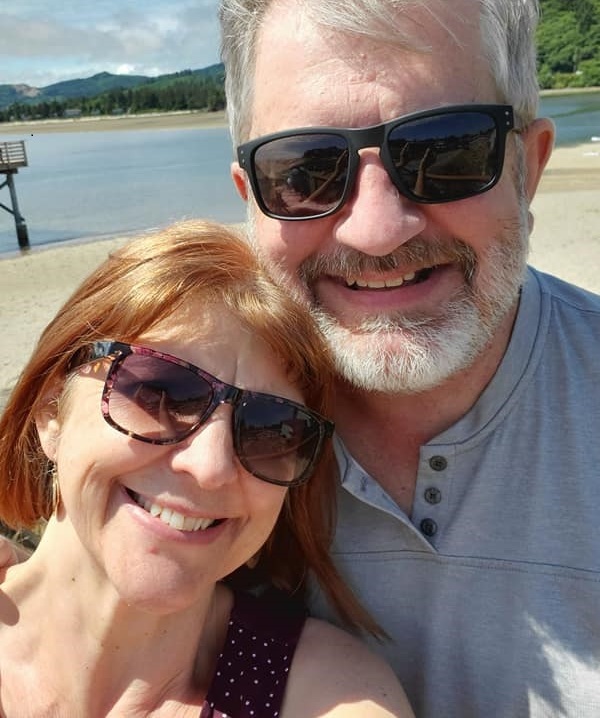11 Proven Ideas on Ensuring a God-Honoring Legacy

Finishing this life with a God-honoring legacy isn’t automatic...and it certainly isn’t easy. So, in my 20s and 30s, I asked a number of older Christians to show me how it’s done. Thankfully, they agreed!
A few months before his death, best-selling author and international consultant Dr. Ted W. Engstrom invited me to spend a day together, just the two of us. His eyesight was gone, but his mind was still sharp.
For hours, he told me about the things closest to his heart.
Among these things was a pact he, Billy Graham, and Bill Bright had made decades earlier, before they became famous:
“We promised each other that we would finish well,” Dr. Engstrom told me, smiling.
Indeed, these men remained committed to their pact. They ensured an enduring, God-honoring legacy.
One of the foremost experts on leadership matters, Dr. J. Robert Clinton, has invested much of his career analyzing why people do—or don’t—finish well. Over the years, he’s done a comparative study of more than 800 Christian leaders’ lives. His conclusion:
“Few leaders finish well.”
In this article, we’ll look at Dr. Clinton’s six common ways to destroy legacy, and five (better) ways to ensure a God-honoring legacy.
Here are the six legacy-destroyers to avoid:
Photo Credit: ©GettyImages
1. Misusing Money

1. Misusing Money
SLIDE 1 OF 6
Scripture warns us against even considering the possibility of following the Lord as a means to financial gain, including 1 Peter 1:13-19 and 2 Peter 2:1-16. Unlike the traitor Judas Iscariot, let’s value Jesus far above money. Let’s value Jesus for who He is, not for what we can get.
To learn more about Judas misusing money, read John 12:1-6.
2. Abusing Power
King David’s son Absalom had what it took to be a national leader—good political sense, excellent counsel, fine leadership. Yet he grabbed power for himself instead of seeking God’s best.
However, the hand that grabbed for more and more came up empty.
Only when our hands are outstretched and open before God, seeking His glory, can He fill them with temporal power and blessing.
If you’d like to look more into Absalom’s story of abusing power, read 2 Samuel 15, 2 Samuel 17, and 2 Samuel 18.
Photo Credit: ©GettyImages/vladans
3. Pursuing Pride

3. Pursuing Pride
SLIDE 2 OF 6
From the beginning of his kingship, Asa set his course to seek the Lord, and God overwhelmingly blessed him for it. If Asa had died a few years sooner, he would have been known as one of Judah’s greatest kings.
Instead, he finished abysmally. Asa’s failed life should prompt each of us to ask, “When I am old, will I still look for God’s divine help at every step? Or will I have developed my own way of handling life?”
Learn more about Asa’s unchecked pride in 1 Kings 15:9-24 and 2 Chronicles 16.
4. Getting Involved in Illicit Sexual Relationships
If Samson hadn’t been ruined by passions and lusts, perhaps an entire book of the Bible would have been written about him. Like Samson, you and I have a life story to write. And like Samson, we have important choices to make.
Samson made the mistake of thinking he was strong enough to bear up under the growing weight of his sexual sins.
It’s a burden that crushed the strongest man in the world. The enemy of our souls now would love to see it crush us too.
Read more about Samson’s illicit sexual relationships in Judges 16.
Photo Credit: ©GettyImages/fizkes
5. Leaving Family Problems Unresolved

5. Leaving Family Problems Unresolved
SLIDE 3 OF 6
Eli was a man who, for all his priestly duties and privileges, had put his own family’s interests ahead of the Lord’s. His affections were set on the prosperity to be had from the Tabernacle offerings and on the calm to be enjoyed when his wicked sons were not provoked to anger. So he heeded his sons’ rebukes more than God’s. Perhaps saddest of all is that even when Eli was confronted with the reality of his family’s deep problems, he didn’t seem to care. As a result, his whole family paid a terrible price.
More about Eli’s unresolved family problems can be found in 1 Samuel 2, 1 Samuel 3
6. Plateauing because of Sin or Loss of Vision
Jeremiah’s scribe, Baruch, almost succumbed to this temptation. Thankfully, he decided to be content doing God’s will instead of longing for something more rewarding. The tasks in front of any of us may seem to produce greater pain than profit. The immediate rewards may seem few.
But any troubles we face doing God’s will are nothing compared to the joy to come.
Read more about Jeremiah’s warning to Baruch in Jeremiah 45.
These 6 common ways to destroy one’s legacy should send a chill down our spine. Thankfully, Dr. Clinton doesn’t stop there. He also lists 5 reasons why people finish well. All five can be seen in the lives of Bill Bright, Ted Engstrom, Billy Graham, and many others.
Here is Dr. Clinton’s list of 5 ways to ensure a God-honoring legacy:
Photo Credit: ©GettyImages/almir
7. Serve God Your Whole Life

7. Serve God Your Whole Life
SLIDE 4 OF 6
When Mary and Joseph brought the infant Jesus to the temple, they met two very old dear saints. Simeon had the Lord’s promise that he would not die until he saw the Lord’s Messiah.
Anna had no such guarantee but, like many others, she knew the time of the Messiah’s coming was near. While they waited, they lived righteous and devout lives, walking with God in obedience and worshiping him with all their hearts.
More about Simeon and Anna serving God into old age can be found in Luke 2:21-38.
8. Keep an Open Heart to God Encounters
Among his many credits, Mary’s husband Joseph believed what the Lord revealed to him in a series of dreams—no what how incredible those revelations were. Each time, Joseph quickly translated his belief into action—at great personal cost.
Not once does Scripture record that Joseph hesitated to instantly follow God’s leading.
Like Joseph, you and I have a choice to make: will we choose God’s will (and ways) no matter what the cost? Or today will we decide to go our own way?
Experience Joseph’s open heart to God in Matthew 1:18-25 and Matthew 2:13-23.
Photo Credit: ©GettyImages
9. Stay Disciplined Daily

9. Stay Disciplined Daily
SLIDE 5 OF 6
Timothy was young enough to have his ministry questioned, yet mature enough in his faith to be entrusted with the spiritual leadership and training of the church in a large city.
Although Timothy’s father apparently was not a Christian, his Jewish mother and grandmother had saturated his young heart and mind with the Holy Scriptures. By the time he met Paul, Timothy was ready to convert his well-rounded biblical knowledge into active service for the Lord.
You can read more about Timothy’s dedication and discipline in Acts 16:1-4, 2 Timothy 1:5, and 2 Timothy 3:15.
10. Commit to Lifelong Learning
As brilliant as he was, Apollos had not yet heard the whole message of Jesus Christ. Like someone who has read the first two books of a trilogy, Apollos needed to be filled in on the exciting conclusion.
Priscilla and Aquila gave him the wonderful news that there was more to believing in Jesus as Messiah. There was more than simply following John’s baptism to show one’s desire to be right with God. Now, that desire could be fulfilled!
Despite his impressive credentials, Apollos never assumed he knew it all. He humbled himself and his ministry grew accordingly.
Apollos is a stellar example of a Christian man committed to lifelong learning. Are you ready to do the same?
Read more about Apollos’s lifelong learning in Acts 18.
Photo Credit: ©Unsplash
11. Learn from Multiple Mentors for Life

11. Learn from Multiple Mentors for Life
SLIDE 6 OF 6
When I asked Dr. Engstrom about this last point, he told me about how he had been mentored over the years, as well as about how he had intentionally mentored others his whole adult life.
Even when he lost his eyesight, he happily continued to meet with others, talk with them by phone, and keep up an incredible amount of correspondence. He didn’t stop until shortly before his death.
Like Paul the apostle, he could say, “I have fought the good fight, I have finished the race, I have kept the faith” (2 Timothy 4:7).
I’ll never forget his joy. Decades earlier, Dr. Engstrom had made a promise, but somehow keeping that promise wasn’t a burden or duty. Instead, it seemed to be the secret of his enthusiasm and vitality.
I’ve seen athletes flash that same smile after winning a major victory. To see it radiate from someone facing life’s end, however, is even more moving—at least it was to me.
Still, Dr. Clinton’s words haunt me: “Few finish well.”
Are you ready to ensure you have a God-honoring legacy? If so, please bookmark this article to read and review through the years.
Photo Credit: ©GettyImages/Hybrid Images

Originally published April 07, 2020.









